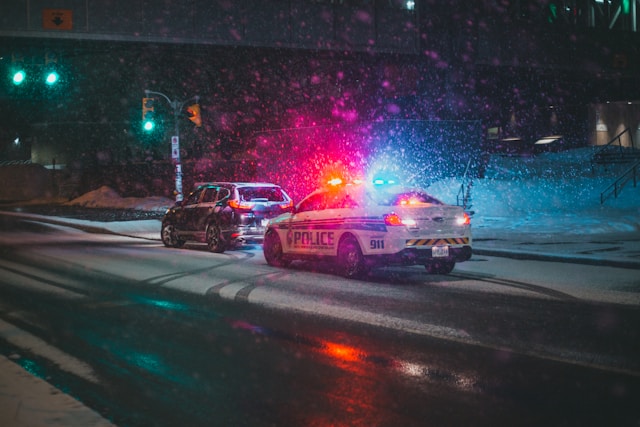Whether you’re driving to work or on the last leg of a road trip, the last thing you expect to see is a police officer behind you with their lights and sirens on. Regardless of whether or not you violated any traffic laws, this can be a nerve-wracking experience. Unfortunately, because of these nerves, many people make mistakes during traffic stops that can lead to bigger legal issues than a ticket for speeding. As such, the following blog explores what you should do when stopped by police while driving, as well as your rights during these interactions. You’ll also discover the importance of working with a Blue Bell criminal defense lawyer to explore your legal options if you are charged with a criminal offense after a traffic stop in Pennsylvania.
What Should I Do When Pulled Over By Police?
When you see a police officer following your vehicle with their lights and sirens on, it’s imperative to take the correct steps to navigate this interaction carefully. You should find a safe location on the road, whether it’s a parking lot of a nearby shopping center or the shoulder of a highway, to pull over. Be sure to use your directional to indicate the turns or lane changes you are making. Once you are pulled over, you should put your hazard lights on, roll your window down, turn your vehicle off, take the keys out of the ignition, and place them on the dashboard. Additionally, you should keep both of your hands on the wheel.
What Rights Do I Have During a Traffic Stop?
When interacting with the police, you have a number of important rights. However, the most important thing you should understand is what you are legally required to do during this stop. First, you must provide your license, registration, and proof of insurance to the officer upon request. Additionally, if at any point you are asked to step out of the vehicle for any reason, you must do so.
However, one of the most important rights you have during a traffic stop is the right to remain silent. As per the Fifth Amendment of the United States Constitution, you do not have to speak to police officers as you are protected from self-incrimination. As such, you should politely inform the officer that you are invoking your right to remain silent. It’s also important to understand that you have the right to an attorney, even if you are not under arrest. Finally, you have protections from unreasonable searches and seizures, meaning the police cannot stop you without a valid reason, nor can they search your vehicle without probable cause, a warrant, or your consent. If the officer asks to look inside your vehicle, you should decline.
When you find yourself in legal trouble following a traffic stop in Pennsylvania, it is imperative to take the necessary steps to protect yourself. This includes connecting with an experienced lawyer at Mudrick & Zucker, P.C. Our team understands how serious these matters can be and the impact they can have on your life, which is why we are committed to doing everything in our power to help you fight for the best possible outcome. Contact us today to learn how we can fight for you.


